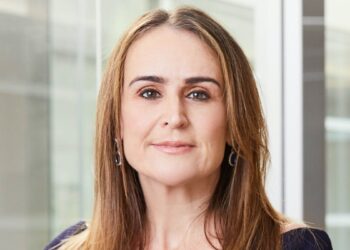An SMSF Adviser poll which has so far seen almost 400 responses indicates 48 per cent of industry stakeholders believe the return of the accountants’ exemption is the best way to improve access to SMSF advice, while 29 per cent think a broader inquiry into SMSF advice is the preferable choice and 23 per cent believe something else entirely is required.
The results come following the re-establishment of the joint accounting bodies alliance to call for a more efficient regulatory framework for advisory services, reversing the initial disagreement from the bodies around the best way forward in their submissions to the recent Treasury review of the TPB.
While the IPA had initially supported returning an “extended” accountants’ exemption, in opposition to CPA Australia and CA ANZ’s rejection of the exemption, IPA chief executive Andrew Conway told SMSF Adviser the three bodies would now be looking at the best advice model to bring to government as a replacement for the current limited licensing scheme.
“The other bodies are engaging with their members around the broader regulatory burden — we have already been on that bandwagon and got our suggested model which is member-led — and our technical teams are working collaboratively to develop a paper,” Mr Conway said.
“We expect to be presenting government with options for reform within calendar year 2020, because the next step for us is direct engagement with one voice of the 270,000 accountants in Australia rather than body by body.”
Mr Conway said while it was understandable accountants still desired the return of the old exemption as they had not yet seen full details of the new proposal, the industry needed to concede that the previous exemption had been too limited to be workable.
“What we are saying is there is a bigger piece to work on here, which is, what does an accountant need to meet the needs of their clients?” he said.
“The core pieces of the accountants’ exemption were SMSF establishment and wind-up, but there is so much more that accountants should be able to provide advice on and we need a consultation process to understand that more.”
BGL managing director Ron Lesh — whose firm had also recently surveyed accountants and found 60 per cent said the current licensing system was “poor, expensive and overly onerous” — said the software provider was still in favour of a return of the original exemption but would also support a broader one in line with the joint bodies’ forthcoming proposal.
“I too would like to see a more wide-ranging exemption under the responsibility of the TPB, but I would see the accountants’ exemption or something similar as a starting point,” Mr Lesh said.
“The accounting bodies would like a more wide-ranging exemption, and I would support that as well, but support for option B does not mean I do not support option A.”



If all super was placed into industry funds then everyone would be happy ? Why are not industry funds under RC ? They are not the panacea everyone thinks
Excessive marketing excessive entertainment charging exceiice advise fees no comparisons to other funds
Ie client charged $3300 to be advised to place money into super from a large industry fund
To set up an SMSF is providing advice to the client to set up a structure that will contain their life savings that will then be invested and will create a revenue stream for the accountant in the form of accounting fees. If you don’t know the rules that go with this “trust”ie SIS regulations then you are in a dangerous position. Super rules are not just like any other trust. Investments are the means to the end, its the rules and lack of knowledge around that, that will bite you in the end. If you want to play in this space i believe you need specialist qualifications.
What we would like is for the accounting bodies to listen to their professional members – ie NTAA, CPA and CA
You can’t give accountants an exemption. History shows they recommend them because that’s all they have to recommend if they are not licensed. Not toforget they benefit from creating more accounting revenue for their practice which is in direct conflict with not being in a position to compare alternatives for clients. There is no evidence to suggest giving them an exemption ‘improves’ access to SMSF advice. An exemption would be a retrograde step. Yes, licensing is onerous but everyone else has to comply with this. If it’s all too hard and you’re not equipped, refer it out. Refer to standard 9 of the FASEA code of Ethics and the explanatory statement around competence – referring out is required where you do not have the competence to advise and licensing is part of that competence. Of course the accounting bodies will lobby and this is expected but that does not mean it is the right thing to do.
I’m fairly certain 48% of the people who responded to the survey are accountants who want to boost their income without the safeguards that come from being licensed so they have a very big conflict in their replies. Consistency should be applied and that means accountants need to be are licensed and I really wish they would stop whinging and get licensed – though I also agree a complete review of the advice process is required (not just in relation to SMSF advice). At the same time ASIC should do something about those unlicensed accountant who are still giving cookie cutter advice without client safeguards as opposed to the current approach of letting them get away with giving “execution only’ advice.
Do you have any proof of this or is this just your contention. Perhaps you are the pot calling the kettle black.
And of course no financial planner ever charged a fee for setting up or managing a SMSF. The hypocrisy is amazing.
FP’s are afraid that if the exemption is again allowed then they will lose clients who are sick of paying huge amounts for ordinary performance and would rather consult with an accountant on administrative matters rather then pay a FP.
The FACT of the matter is that a SMSF is NOT a product, it is a structure – it is a trust, with a constituting Trust Deed, just like any other trust structure.
The accounting bodies should be taking ASIC to task on this erroneous interpretation.
The “products” are what the structure invests in. Again, a “normal” trust can invest according to its Deed, but if it invests in “products”, then a licenced investment adviser should be consulted in relation to the proposed investments – NOT because it is a trust, but because of the nature of the investments.
Quite simple really! But it has been made tremendously difficult by the erroneous interpretation. Fix that, and away we go!
Which are then used to invest into a product of some sort. I’d rather our legislative bodies err on the side of caution. Of course over priced residential real estate isn’t a financial product but I’m not sure that supports not being licensed.
All super funds are constituted by a trust deed whether they be industry, for profit or SMSF. They all have a trustee. They are all structures which invest in a portfolio. If Industry and for profit super funds are defined as products then an SMSF is surely one as well. If your contention is that it is not a product, then no super fund can be defined as a product – I don’t think this will fly with policy makers, regulators and consumers.
Any super fund, any contribution to any super fund, any pension, any death benefit nomination etc are ALL product recommendations.
The old Accountants exemption was soooooooo badly abused as a Carte Blanche to provide bucket loads of Illegal AFSL advice with zero AFSL compliance.
Sorry Accountants that or a newer version ain’t coming back.
Totally agree overall red tape and BS AFSL
Compliance needs to be reduced but a level playing field must be used too.
Not really abused by accountants. Most accountants have the best interest of their clients at heart in fact it is an ethical requirement. A pity the same cannot be said concerning financial planners.
That $50k in cash really should be in an SMSF. One day you will probably add to it. I’ve closed four SMSF’s in two months for accounting clients who had less than $200k in their SMSF and each of them told me that their accountant (who was different) told them it was a good idea.
I commend the IPA on their great work (I am a CA).
You are a true voice for the accounting community.